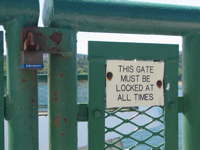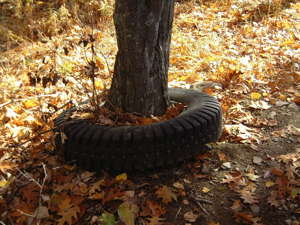
Do we only want what we know? Is that why women continue to be under-represented on stage?
Last season in Canada only 23% of plays were by female authors alone, another 16% were by a mixed collaboration but a full 61% were by male writers (data compiled by the Playwrights Guild of Canada).
Why don’t the women in the audience demand change? I’ve thought a lot about the reason. In fact I’m asked that question every year when we do the media rounds to promote the festival I produce dedicated to women playwrights, FemFest.
I think for many entrenched in the business and the subscriber audiences there is a craving for what is comfortable, what is known… Heck, I admit I hate change myself and get prickly when my routine is thrown off.
I used to crave a good fairy tale as a young girl. But, when it comes to theatre I have long left a desire for the same old behind and crave something that will challenge me. I go to theatre and hope for a show that will have enough impact that it reminds me why I have chosen to dedicate my life to theatre as an art form.
Unfortunately, the shows I am excited by are often the ones I’m watching with small audiences. Several people I know say they don’t want to be challenged and they only want to go to a show they know will be good. I hear the same kind of feedback from many of my first year performance students who balk when they have to read Top Girls.
The non-linear structure, the overlapping dialogue, the thematic rather than plot based writing leaves many confounded. I often hear “It was painful to read” or “how could an audience understand anything if they are all talking at once” and “why are those women there in the first scene and then never show up again”…etc.

They want a beginning, middle and end. They want a male character who they have become accustomed to relating to in most stories. When this particular play was performed in Winnipeg a few years back, I heard the same type of response from many women in the audience who longed for a traditional play.
I think that is one part of the larger question of why women continue to lag behind when it comes to plays on stage. Of course there is history and battling centuries of classic work all written by men. There is our modesty as women (beautifully acknowledged in Mary Jane Walsh’s post on this blog) that holds us back from networking and promoting.
I think though the tendency to want what is already known and understood is a factor. Whether it is a tendency to steer away from non-linear work or just avoid work by an unknown quantity. Many female playwrights write linear plays with a traditional structure and do so very well yet they also are not being produced as often as men – they are themselves an unknown.
Personally, as a playwright, I am constantly battling with the supposed rules and my creative impulse. A couple years ago I was working on a non-linear play. It needed work. I was struggling to achieve what I knew I wanted to with the piece and as we approached production both the dramaturg and director said the play had to be rewritten in a linear fashion or it wouldn’t work.
I reworked it accordingly. It never felt right and I think the crux of what I was trying to communicate was lost. Working with a European dramaturg several years prior he said in Canada we are all about neat plots. They feel too neat and contrived. To a certain extent he was right, but what he missed was the fact that this is also what most of the mainstream audience wants.

I would love to tell a story in a different way but I don’t have the craft to do it well and I fear in a system set up on tradition I may never have the opportunity to learn this craft.
Plus I worry if I veer off from what is standard, not only will the work not be produced but it will be dismissed as women’s writing. A term unfortunately used to negate exciting new forms.
I am proud to be a woman and a playwright, but I know many others reject being classified as a woman playwright. It is true that male playwrights do not have their gender stated in the same way, again this points to the norm and we as the exception.
This year in my home city of Winnipeg seven local women playwrights are seeing their work premiered. It is amazing but unique. I really hope it is a sign of a greater trend and represents on-going change. I am trying to avoid the voice telling me it is an anomaly.
© Hope McIntyre 2013. This article may be reproduced only with full attribution to the copyright holder.
![]() at the top of the post
at the top of the post![]() at the top of the post
at the top of the post